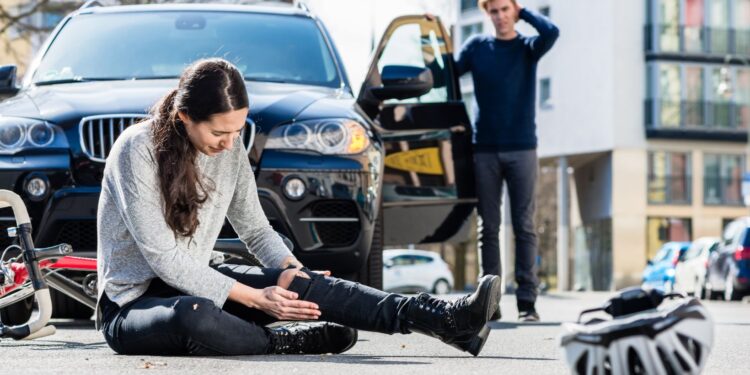Biking is a popular and environmentally friendly mode of transportation, but unfortunately, bike accidents are a common occurrence, especially in busy urban areas. Whether you’re commuting to work, enjoying a leisurely ride, or participating in a cycling event, the risk of an accident is always present. In fact, according to Centers for Disease Control and Prevention (CDC) data, over 130,000 bicyclists are injured in crashes on roadways every year in the United States.
Hesperia bike accident attorney Matthew R. Price points out that sustaining an injury in a bike accident can be a traumatic experience, and it’s crucial to understand the steps you need to take to protect your health, your legal rights, and your financial well-being.
If you ever find yourself in this unfortunate situation, here are the key steps to follow to ensure both your safety and your chance for fair compensation.
Immediate Safety Measures
Following a bike accident, the priority is to make sure everyone is safe. If possible, move away from traffic and try to move to the roadside or sidewalk to avoid further danger and prevent additional injuries. Once you’re in a secure location, take a moment to assess yourself for injuries. Check your mobility and assess any pain. If you experience pain or difficulty moving, seek immediate medical attention.
Next, evaluate the situation around you. If there are others involved in the accident, take a moment to check on how they are doing and offer help if you can. Make sure to collect contact details from any witnesses, as their statements can be useful later on. Document any property damage resulting from the accident, including any harm to your bike or other vehicles that were part of the incident.
Documenting the Accident
Accurate documentation is necessary for your claim. Begin by taking photos of the accident scene. Make sure to capture any visible damage to your bike and other vehicles, as well as important details like street signs, traffic lights, or skid marks in the area.

Remember to note down the location, the state of the roads, and any injuries that may have occurred.
Get the contact information of any witnesses and record their statements. Their stories can help clarify what led to the accident and strengthen your case. Write down your own version of the incident while it’s fresh in your mind. Make sure to include key details like the date, time, weather conditions, and a description of how the accident happened.
Keep all receipts, medical bills, and records related to the accident and your treatment. This documentation will be essential for insurance claims and legal matters.
Seeking Medical Attention
After thoroughly documenting the accident, seek medical attention immediately. Some injuries, like concussions or internal injuries, may not show symptoms right away but can have serious long-term effects. Visit your local hospital, urgent care center, or primary care physician for a thorough exam. Inform the medical staff of the accident and your symptoms for proper diagnosis and treatment.
Getting prompt medical attention is essential for your well-being and helps ensure that your injuries are properly documented for insurance purposes. Medical records, bills, and receipts related to the accident are crucial for your claims, as they can illustrate the impact the accident had on your life. Keep in mind to attend all follow-up appointments and adhere to the treatment plan prescribed by your doctor. Failing to do so could lead your insurance company to question the severity of your injuries, potentially affecting your claim.
Contacting Authorities and Insurance
Once you have ensured your safety, call the police. They document the accident, collect witness statements, and prepare an official report that is essential for insurance claims and legal matters. Be sure to share information with everyone involved, such as names, contact details, and insurance information.

After notifying the authorities, reach out to your insurance company. Report the incident as soon as possible, providing all relevant details, including the police report number. Your insurer will guide you through the claims process, assess damages, and help clarify your coverage.
Keep detailed records of all communications with both the police and insurance company. This documentation can be helpful if any disagreements come up during the claims process.
Consulting With a Legal Professional
Getting legal advice can guide you through the complexities of your bike accident case. A bicycle accident lawyer can explain your rights, guide you through the legal process, and advocate for you. Start seeking legal advice early to protect your rights and pursue compensation for your injuries and damages.
Make sure to share details about any injuries you sustained, what happened before the accident, and any conversations you’ve had with insurance companies or others involved. A lawyer can examine your case, guide you through your legal options, and assist you in securing the compensation you deserve.
Conclusion
Being involved in a bike accident can be a frightening and overwhelming experience, but understanding the necessary steps can significantly impact your safety and help you secure the compensation you deserve. If you are feeling uncertain about the next steps, bringing a lawyer on board can be really helpful.
















